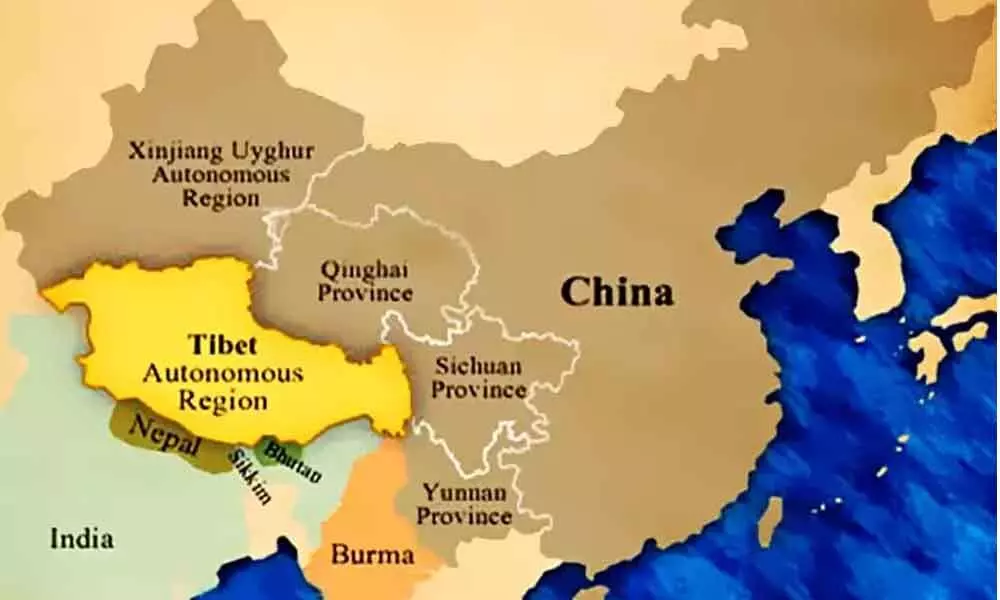Chinese fascism in Tibet

Chinese fascism in Tibet
Disturbing reports are emerging from Tibet about the repression unleashed by the Chinese and it is high time that the world took note of it and deal with China accordingly
Disturbing reports are emerging from Tibet about the repression unleashed by the Chinese and it is high time that the world took note of it and deal with China accordingly. In 2019 and 2020, the Tibet Autonomous Region (TAR) introduced new policies to promote the systematic, centralised, and large-scale training and transfer of "rural surplus labourers" to other parts of the TAR, as well as to other provinces of the Peoples Republic of China (PRC).
In the first seven months of 2020, the region had trained over half a million rural surplus labourers through this policy. This scheme encompasses Tibetans of all ages, covers the entire region, and is distinct from the coercive vocational training of secondary students and young adults reported by exile Tibetans (RFA, October 29, 2019).
The labour transfer policy mandates that pastoralists and farmers are to be subjected to centralised "military-style" vocational training, which aims to reform "backward thinking" and includes training in "work discipline," law, and the Chinese language.
Examples from the TAR's Chamdo region indicate that the militarised training regimen is supervised by People's Armed Police drill sergeants, and training photos published by state media show Tibetan trainees dressed in military fatigues. Poverty alleviation reports bluntly say that the state must "stop raising up lazy people." Documents state that the "strict military-style management" of the vocational training process "strengthens [the Tibetans'] weak work discipline" and reforms their "backward thinking." Tibetans are to be transformed from "[being] unwilling to move" to becoming willing to participate, a process that requires "diluting the negative influence of religion."
This is aided by a worrisome new scheme that "encourages" Tibetans to hand over their land and herds to government-run cooperatives, turning them into wage labourers. An order-oriented, batch-style matching and training mechanism trains labourers based on company needs. Training, matching and delivery of workers to their work destination takes place in a centralised fashion.
Recruitments rely, among other things, on village-based work teams, an intrusive social control mechanism pioneered in the TAR later used in Xinjiang to identify Uyghurs who should be sent to internment camps. Key policy documents state that cadres who fail to achieve the mandated quotas are subject to "strict rewards and punishments".
This means that Tibetan nomads and farmers must change their livelihoods so that they earn a measurable cash income and can therefore be declared "poverty-free so that Xi could take credit for the same. This draconian scheme shows a disturbing number of close similarities to the system of coercive vocational training and labour transfer established in Xinjiang.
The fact that Tibet and Xinjiang share many of the same social control and securitisation mechanisms renders the adaptation of one region's scheme to the other particularly straightforward. These are policies that best suited the medieval ages or even pagan lifestyles.
Can the modern world accept these policies and allow suppression of masses in the occupied lands? Or is it that just because no news comes out of China vividly, the world ignores the Chinese fascism? Should not the world come together to halt Chinese atrocities in occupied territories, be it Uyghurs or Tibetans?








